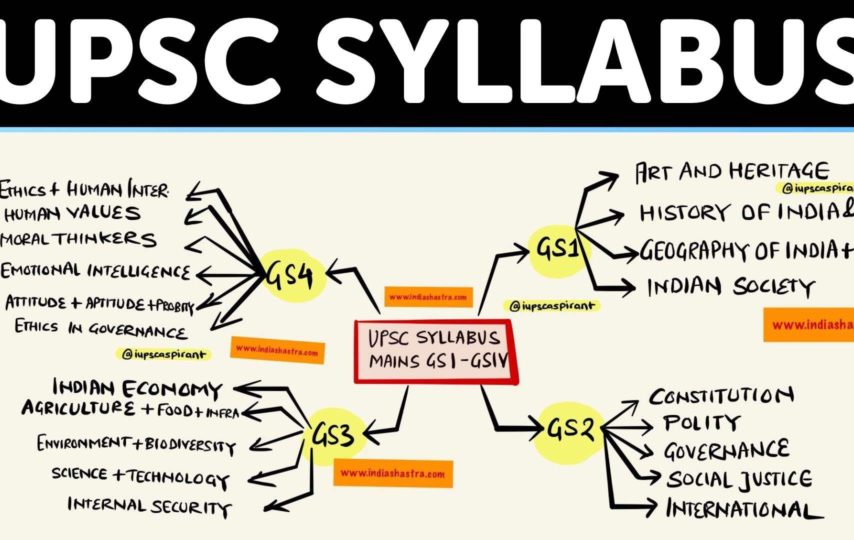The Union Public Service Commission (UPSC) publishes the UPSC Syllabus on the official website at the same time as its formal notification. The IAS syllabus is broken up into two sections for the Main and Preliminary exams. Before beginning their preparation, UPSC candidates must be familiar with the UPSC Syllabus.
The UPSC syllabus is thought to be extensive and challenging to cover, therefore candidates must take notice of it to strategically organize their preparation. Candidates preparing in Hindi can also chcek UPSC Syllabus in Hindi in detail for prelims and mains exam.
Syllabus for UPSC in Hindi
The UPSC Syllabus in Hindi for Preliminary and Main Examination separates the IAS syllabus into sections based on the stages and selection procedure. The first stage is the preparatory examination, which has a qualifying purpose. The UPSC Prelims Sylabus includes two papers
Candidates who pass the preliminary exam show up for the descriptive-based main exam. The chosen applicants show up for the interview stage following the main exam. Analyze the entire UPSC syllabus before beginning your preparation to make sure you are fully equipped.
The Union Public Service Commission (UPSC), an organization of the central government, administers the tests for the Indian Civil Service (IAS). The preliminary exam, the main exam, and the interview are the three components of the IAS exam. General Studies Paper-I and General Studies Paper-II are the two papers that make up the preliminary stage. Nine papers, each on a different topic, make up the main stage.
An applicant for IAS should have at least a graduation degree from a recognized university or institute. It is also necessary that he/she passes his/her post-graduation with at least 50% marks (45% for SC, ST, and OBC candidates). There are other criteria such as age limit (25-30 years), upper age relaxation, and a minimum of 10 years of educational qualification.
Syllabus for UPSC preliminary examination
There will be two objective-type papers in the Preliminary Examination (General Studies Paper I and General Studies Paper-II). Candidates will have to answer all questions in both papers. Each paper will be of two hours duration and carry a maximum of 200 marks.
For both Paper 1 and Paper 2, candidates can access and download the UPSC Prelims Syllabus. The following topics are covered in Paper 1 of the UPSC Prelims Syllabus:
- Important recent occurrences on the national and worldwide stage
- India’s history and the Indian National Movement
- The natural, social, and economic geography of India and the rest of the world
- Public policy, constitutional arrangements, Panchayati raj, and rights issues, among others. are all examples of Indian politics and governance.
- Among examples of economic and social development are poverty alleviation, inclusion, demographics, and social sector initiatives.
- Environmental ecology, biodiversity, and general climate change issues without a specific focus
- Basic Science
Preliminary Examinations serve only as screening tests. In determining their final order of merit, candidates who are declared qualified for admission to the Main Examination will not be evaluated on the marks they obtained in the Preliminary Examination.



























































